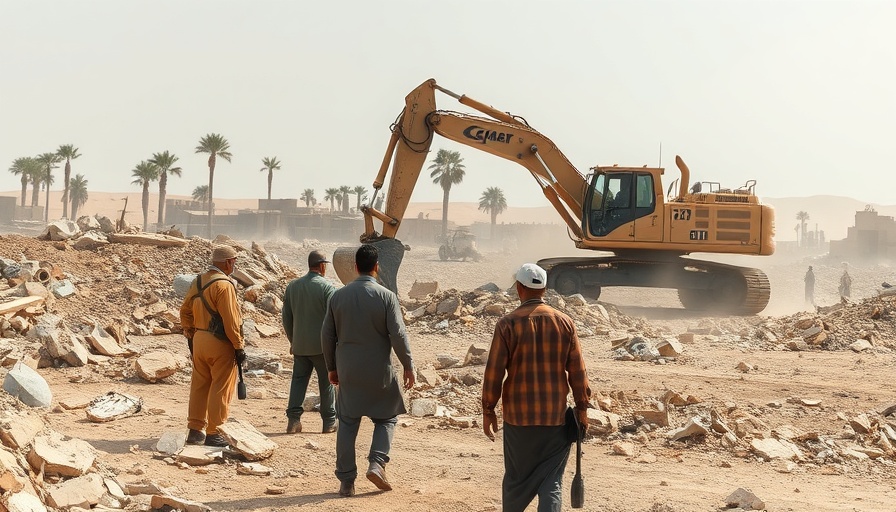
How Trump's Military Actions Are Escalating Tensions in the Middle East
Recent letters to the editor highlight a growing concern among citizens regarding former President Trump's recent military strategies targeted at Iran. Many argue that his aggressive actions are not merely political posturing, but detrimental decisions that undermine global stability.
One letter points out that Trump's bombing of nuclear sites poses a significant risk of escalation in an already volatile region. Critics emphasize that such attacks do not just threaten Iran but have broader implications for regional countries, potentially drawing them into conflict. The notion that Iran might perceive a need to develop its own nuclear arsenal is alarming to many, highlighting fear over nuclear proliferation.
The Call for Diplomatic Solutions Over Military Intervention
Multiple letters from concerned citizens advocate for a strategic shift toward diplomacy rather than military intervention. As one correspondent from Oakland aptly noted, instead of further bombing, what is needed is a return to diplomatic negotiations aimed at resolving tensions. This reflects a growing sentiment that the path forward should not include military might but rather a commitment to dialogue.
The call for an end to U.S. arms to Israel, which are implicated in attacks on Iran, also resonates strongly amongst those who believe that peace cannot be achieved through armed aggression. The public demands an approach grounded in mutual respect and understanding, an alternative to the cycle of violence that has marked U.S. foreign policy in the region for decades.
What Historical Patterns Teach Us About Military Action
Historically, military interventions in the Middle East have led to unintended consequences. Past experiences have demonstrated that bombing campaigns, such as those in Iraq and Afghanistan, did not yield the stability promised to the American public. Instead, they often created fertile ground for insurgent groups and led to prolonged conflict. This raises questions about the legitimacy and efficacy of military options as strategies for achieving foreign policy goals.
A Voice for Fairness in Governance and Accountability
Amid the discourse around foreign policy, local politics are also under scrutiny. Some letters express concerns about ethical conflicts within governmental decision-making, highlighting how campaign donations from unions can lead to corruption and mismanagement. This undercurrent of local dissent reflects frustration not only towards foreign policy but also towards domestic governance.
When addressing corruption within city councils, citizens are voicing a desire for transparency. For many, the connection between campaign financing and subsequent policy decisions creates a perception that elected officials are prioritizing their own interests over the welfare of their constituents.
The Future of U.S.-Iran Relations: Predictive Insights
Looking ahead, the question remains: How will Iran respond to Trump's recent military actions? Many experts posit that disregard for diplomatic channels will likely exacerbate tensions further, leading to increased instability in the region. As citizens reflect on the implications of military action, the emphasis on diplomacy becomes not just a wish but a necessity for moving forward.
Government actions that favor hawkish policies over peaceful engagement may fracture alliances and generate animosity that could last for generations, showcasing the significance of fostering a cooperative international environment.
Engaging in Open Dialogue: What We Can Do
The resonance of the letters reflects a broader desire for citizens to influence foreign policy through informed discussion and civic engagement. Many readers are passionate about participating in public forums, advocating for policies that prioritize peace and stability.
As these discussions unfold, it’s crucial for individuals to voice their opinions, push for accountability in governance, and rally for diplomatic solutions. Armed with awareness and advocacy, the hope is that a collective vision for peace can emerge, advocating for policies that will ensure not only U.S. security but also regional stability.
 Add Row
Add Row  Add
Add 




Write A Comment